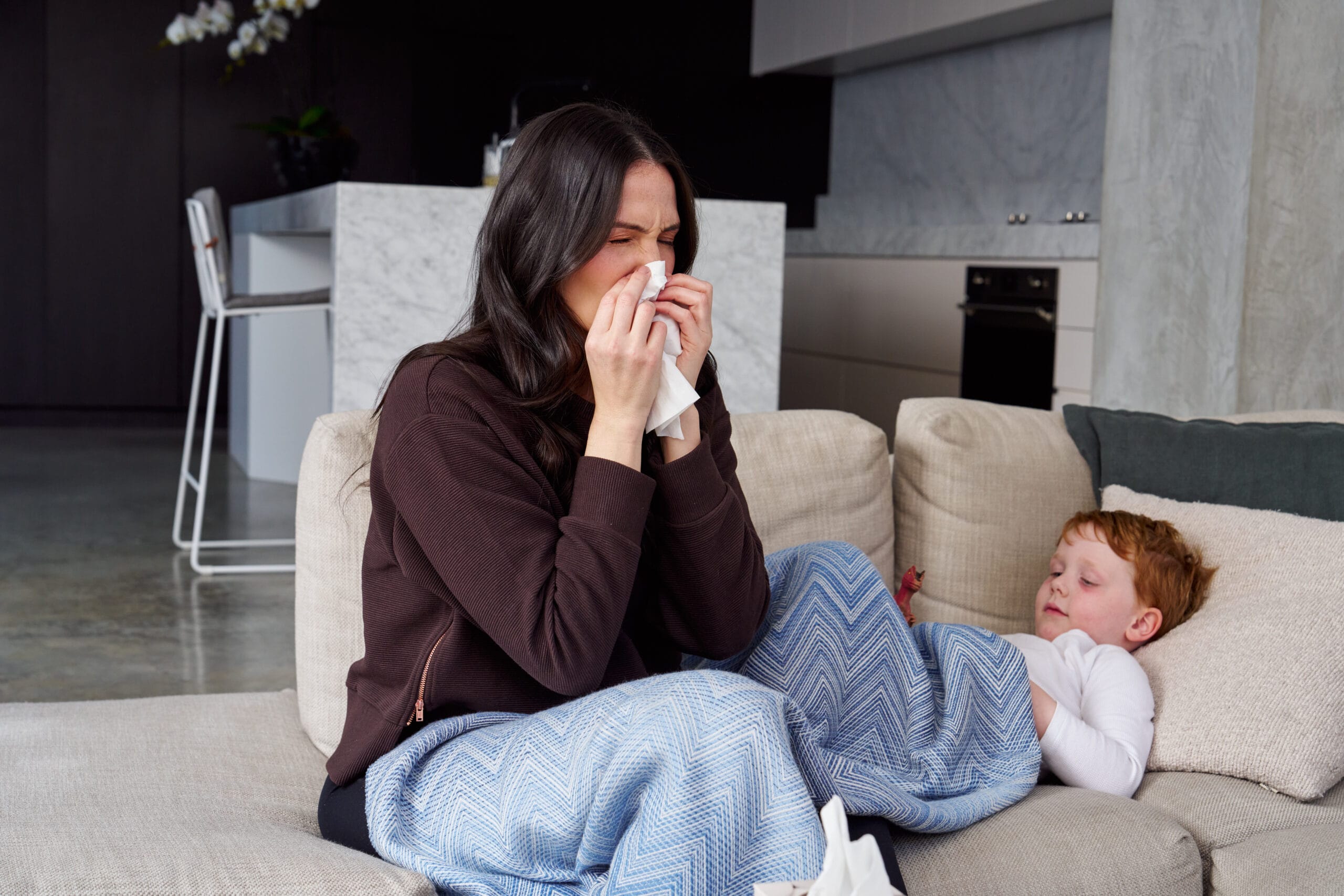21/09/2025
Hassle-Free Gastro Recovery: Your Complete Guide to Rehydration & Getting Better Fast
Gastroenteritis affects millions of Australians each year, causing severe dehydration that needs proper care. Medmate brings you this complete guide. We’ll cover proven rehydration methods, important warning signs, and simple recovery steps to help you or your family get better safely.
Understanding Gastro and Dehydration Risk
What Causes Gastro?
Gastroenteritis (commonly called gastro or stomach flu) happens when viruses, bacteria, or parasites attack your digestive system. This causes inflammation in your stomach and intestines, leading to rapid fluid loss through vomiting and diarrhea.
Common causes include:
- Norovirus (most common in adults)
- Rotavirus (common in children)
- Bacterial infections (Salmonella, E. coli, Campylobacter)
- Contaminated food or water
- Close contact with someone who’s sick
Why Dehydration Happens So Fast
Your body loses fluids faster than you can replace them, throwing off your electrolyte balance within hours. During gastro, you lose water and essential minerals through:
- Frequent vomiting that stops you keeping fluids down
- Watery diarrhea that drains your water reserves
- Fever that increases sweating
- Not drinking enough due to nausea
- Poor absorption in your intestines
Important Warning Signs: When to Get Emergency Help
Adult Warning Signs
Knowing serious dehydration symptoms can save lives. Get immediate medical help for:
Severe dehydration signs:
- Little or no urination for 8+ hours
- Dark yellow or amber urine
- Extreme thirst with dry mouth
- Fast heartbeat or breathing
- Dizziness or fainting when standing
- Sunken eyes or cheeks
- Skin that stays pinched when you lift it
Emergency symptoms – call 000:
- Blood in vomit or stool
- Severe stomach pain
- High fever above 38.5°C
- Confusion or not thinking clearly
- Chest pain or irregular heartbeat
- Signs of shock (cold, clammy skin)
Children’s Warning Signs
Children dehydrate faster than adults. Watch for moderate to severe dehydration:
- Flat
- No wet nappies for 3+ hours
- Crying without tears
- Unusual drowsiness or irritability
- Sunken soft spot on baby’s head
- Dry lips and tongue
- Fast breathing or heart rate
Get medical care immediately for:
- Bloody diarrhea
- Can’t keep fluids down due to vomiting
- Fever above 38.5°C in babies
- Very sleepy or unresponsive
- Severe stomach pain
Proven Rehydration Methods
Oral Rehydration Solutions (ORS)
ORS remains the best treatment for mild to moderate dehydration – it works better than water alone. These solutions contain the right balance of:
Available ORS products:
- Pedialyte (various flavours)
- Gastrolyte/hydralyte : fluids or ice blocks
- Gatorade G2 (lower sugar)
How to Rehydrate Properly
Follow these simple steps:
Phase 1: First 4 hours
- Adults: 50-100 mL every 5-10 minutes
- Children: 5-10 mL every 5 minutes
- Use a syringe or spoon if vomiting
- Keep going even if vomiting – most fluid still absorbs
Phase 2: Next 4-24 hours
- Increase amounts as tolerated
- Adults: 200-400 mL per hour
- Children: Age-appropriate amounts
- Watch for improved urination
Phase 3: Recovery (24+ hours)
- Slowly add clear liquids
- Start bland foods: dry toast and biscuits
- Keep hydrating between meals
- Avoid dairy for 48-72 hours
Recovery Timeline and What to Eat
First 24-48 Hours
Start with:
Clear liquids:
- Electrolyte solutions
- Clear broths (chicken, vegetable)
- Herbal teas (ginger, chamomile) Read: Is Ginger Good For You
- Diluted apple juice
- Coconut water
- Ice blocks or icy poles
Foods to avoid:
- Dairy products
- Fatty or fried foods
- High-fibre vegetables
- Coffee and alcohol
- Spicy foods
- Citrus fruits
Days 2-4: BRAT Diet
The BRAT diet (Bananas, Rice, Applesauce, Toast) gives you easy-to-digest foods that help firm stools.
Slowly add:
- Plain crackers
- Boiled potatoes
- Cooked carrots
- Lean proteins (chicken, fish)
- Probiotic yogurt (after 72 hours)
- Well-cooked pasta
Days 5-7: Back to Normal Eating
Return to regular meals while:
- Staying well hydrated
- Adding foods slowly
- Watching how you feel
- Avoiding trigger foods
- Continuing probiotics
Prevention and Staying Healthy
Good Hygiene Habits
Prevent gastro spreading through:
Hand washing:
- Wash hands for 20+ seconds
- Use soap and warm water
- Clean after toilet use
- Wash before handling food
Home cleanliness:
- Disinfect surfaces
- Wash soiled laundry in hot water
- Keep sick people separate
- Don’t share eating utensils
Boost Your Immune System
Stay strong against future infections:
Healthy eating:
- Eat probiotic-rich foods
- Include prebiotic fibre
- Stay hydrated daily
- Limit processed foods
Lifestyle tips:
- Get regular sleep
- Manage stress
- Exercise regularly
- Consider vitamin D supplements Read: Vitamin D Sunshine Vitamin
Common Questions
How long does gastro usually last?
Most gastro cases clear up within 1-3 days for viral infections and 3-7 days for bacterial causes. Symptoms are worst during the first 24-48 hours, then gradually improve with proper rehydration and rest. Through MedMate’s hassle-free delivery service, Australian families can get the rehydration products they need delivered right to their door.
Can I give my child regular sports drinks?
Regular sports drinks have too much sugar and not enough electrolytes for treating dehydration in children. Children’s rehydration solutions like Pedialyte or Hydralyte are made specifically for young ones.
When can I go back to work after gastro?
Wait at least 48 hours after all symptoms stop before returning to work or school. Some infections stay contagious for several days after recovery, especially important for food service or healthcare workers. Your local MedMate pharmacy can help with medical certificates if needed. Get a Medical Certificate Online
Is the BRAT diet still recommended?
BRAT foods are still gentle options during recovery, but doctors now suggest adding lean proteins and vegetables too. This updated approach gives better nutrition while being easy on your stomach.
What’s the difference between gastro and food poisoning?
Gastro usually comes from viral infections with gradual onset, while food poisoning causes sudden symptoms from bacterial toxins. Both have similar symptoms but different causes, timing, and duration.
Should I take anti-diarrheal medicines?
Avoid anti-diarrheal medicines for the first 24-48 hours as they can make infections last longer by keeping toxins in your system. Check with healthcare providers before using these, especially for bacterial infections.
Can probiotics help recovery?
Studies show certain probiotic strains like Lactobacillus rhamnosus and Saccharomyces boulardii can shorten symptoms by 1-2 days. Start probiotics after the worst symptoms pass for best results.
How much should I drink during recovery?
Adults need at least 2-3 litres of fluids daily during gastro recovery, while children need 100-150 mL per kilogram of body weight. Drink more if fever, vomiting, or diarrhea continue.
Are there natural remedies that help?
Ginger tea helps with nausea, chamomile calms inflammation, and peppermint eases cramping – but these support rather than replace proper rehydration. Always put ORS and medical care first for severe symptoms. Medmate’s Australian registered pharmacists can guide you on combining natural remedies with proven treatments.
When are IV fluids needed?
IV rehydration becomes necessary when you can’t keep fluids down due to constant vomiting, show severe dehydration signs, or have changes in consciousness. Healthcare providers decide based on how severe your symptoms are.
Can gastro cause lasting problems?
Most people recover completely, but severe dehydration can cause kidney problems, and some develop post-infection IBS lasting weeks to months. Proper treatment greatly reduces these risks.
How do I know if my child is getting better?
Signs of improving hydration include more urination, tears when crying, moist lips and mouth, better energy, and normal skin elasticity. Keep watching until they’re fully recovered.
Conclusion
Gastro needs quick attention to prevent dangerous dehydration, but proper rehydration and knowing warning signs ensures safe recovery. Remember that oral rehydration solutions work for most cases, serious symptoms need immediate medical care, and gradual return to normal eating supports healing. Stay on top of hygiene to prevent future infections and maintain good digestive health.
For ongoing symptoms or concerns about dehydration, Contact Us healthcare providers immediately. Together, we can help you and your family recover safely from this common condition.
Recommended reading
Search for a specific topic or filter by categories to find information on what you need to know on the full Medmate Journal

Medmate Sore Throat Checker: Red Flags vs Self-Care Guide
Medmate, Australia’s award-winning telehealth service connecting you to healthcare 24/7, knows that sore throats affect millions daily. But when should you treat at home versus see a doctor? This guide…

Hassle-Free Hay Fever Relief: Compare Your Treatment Options
Hay fever affects millions of Australians every year. The sneezing, itchy eyes, and blocked nose can really disrupt your daily routine. At Medmate, our Australian-registered doctors help patients across the…